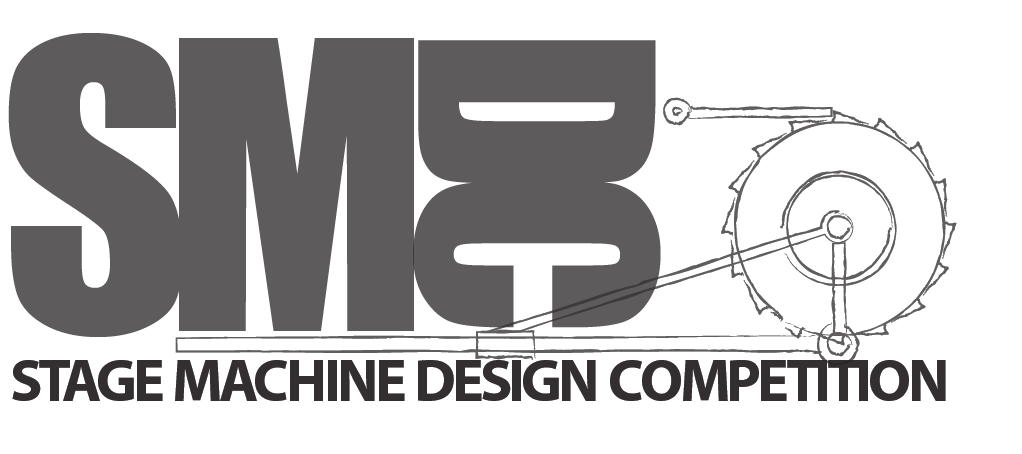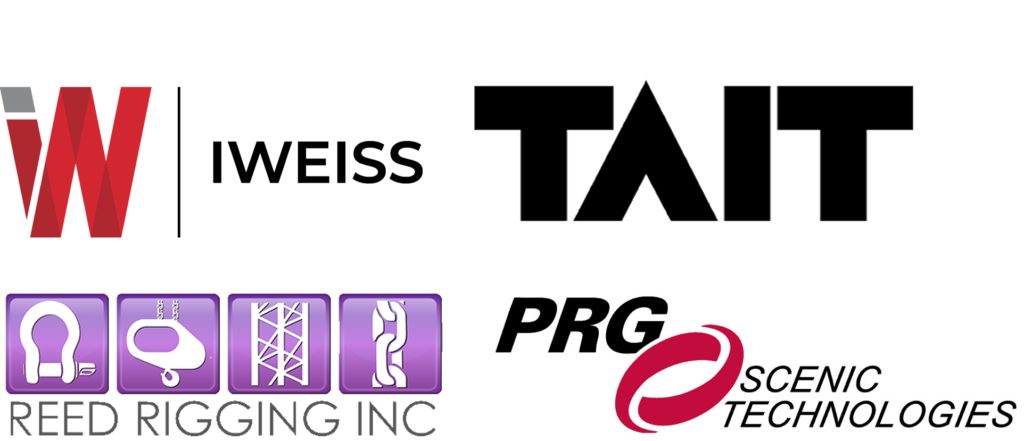
COMPETING IN THE SMDC
2023 COMPETITION SPONSORS

General Competition Rules
Teams of two to four, made up of any combination of college or university students at any level (graduate or undergraduate) may enter the competition. No solo entries will be accepted. No entries of teams with more than four participants will be accepted.
Each team must have a faculty or staff coach from a college or university theatre department who can attest to each team member’s commitment to theatre technology and/or theatre engineering. Coaches must be present at the competition and can work with more than one team. (However, we recommend not coaching more than two total teams.) For more information, see the Registration page.
To register, follow the instructions on the Registration page. Registration cost is $25 per individual participant (not per team) and is non-refundable. (Note that participants — including faculty sponsors — are responsible for all travel-related expenses, though lunch will be provided on the day of the competition event.)
All participants will be given the opportunity to design a solution to this year’s Stage Machine Design Competition challenge. All teams will be given the same information about the challenge, including any constraints on the effect to be designed. Each team may choose the methods, materials, parts, and other elements of the solution (with some limitations; see below). Each team will be assessed by the judges using the same rubrics for each award category.
To enter the competition, each team must provide the following:
- A written proposal for their design with corresponding paperwork (to be submitted three months prior to the competition event):
- Design specification documents (detailing the requirements of the machine, as best as the team understands them, etc.).
- Concept designs (sketches, drawings, lo-fidelity prototypes exploring multiple design solutions to the challenge, and a justification for why the team chose to follow through on a specific concept).
- A working prototype (to be tested on-site at the competition event):
- The prototype itself.
- Any required tools to assemble and operate your device.
- Any additional equipment beyond the scope provided in the event venue, within the parameters detailed in the Design Challenge.
- A design document (to be delivered at the competition event):
- The proposal.
- Detail design materials (estimates, parts lists, technical drawings, appropriate mathematical/engineering analyses, etc.).
- As-built drawings.
- Documentation of actual costs.
- Any relevant safety and/or operation manuals.
- Assessment of successes/failures of the design.
- Assessment of successes/failures of the team.
Teams must submit one (1) PDF version of their proposal by February 28 for consideration and review. Teams must bring one (1) bound copy of their final design document and their working prototype to the competition.
The following resources will be available at the competition site on the day of the competition:
- Up to 15A 110-120VAC power per participating team will be available for testing and competition
- 100 PSI air pressure available by 1/4” tube or quick-connect by request. Requests for air supply must be made prior to May 1 by emailing the competition hosts.
- Additional resources may be available depending on the specific challenge and will be detailed in the Design Challenge.
Teams will be provided with time prior to testing to calibrate and tune their devices.
Under no circumstances can any team’s prototype include explosives or pyrotechnics. Prototypes including explosives or pyrotechnics will be immediately disqualified from the competition.
The competition hosts reserve the right to remove any device from the competition that is deemed unsafe to operate or in direct violation of competition guidelines. Additionally, all teams are expected to function professionally, ethically, and within the honor code of their university or college. Teams may be disqualified for behavior unbecoming themselves or their schools. All disqualifying or removal rulings are final, and no entry refunds will be issued.